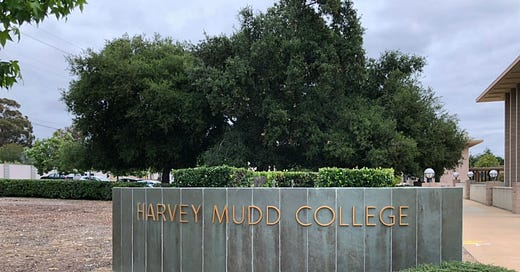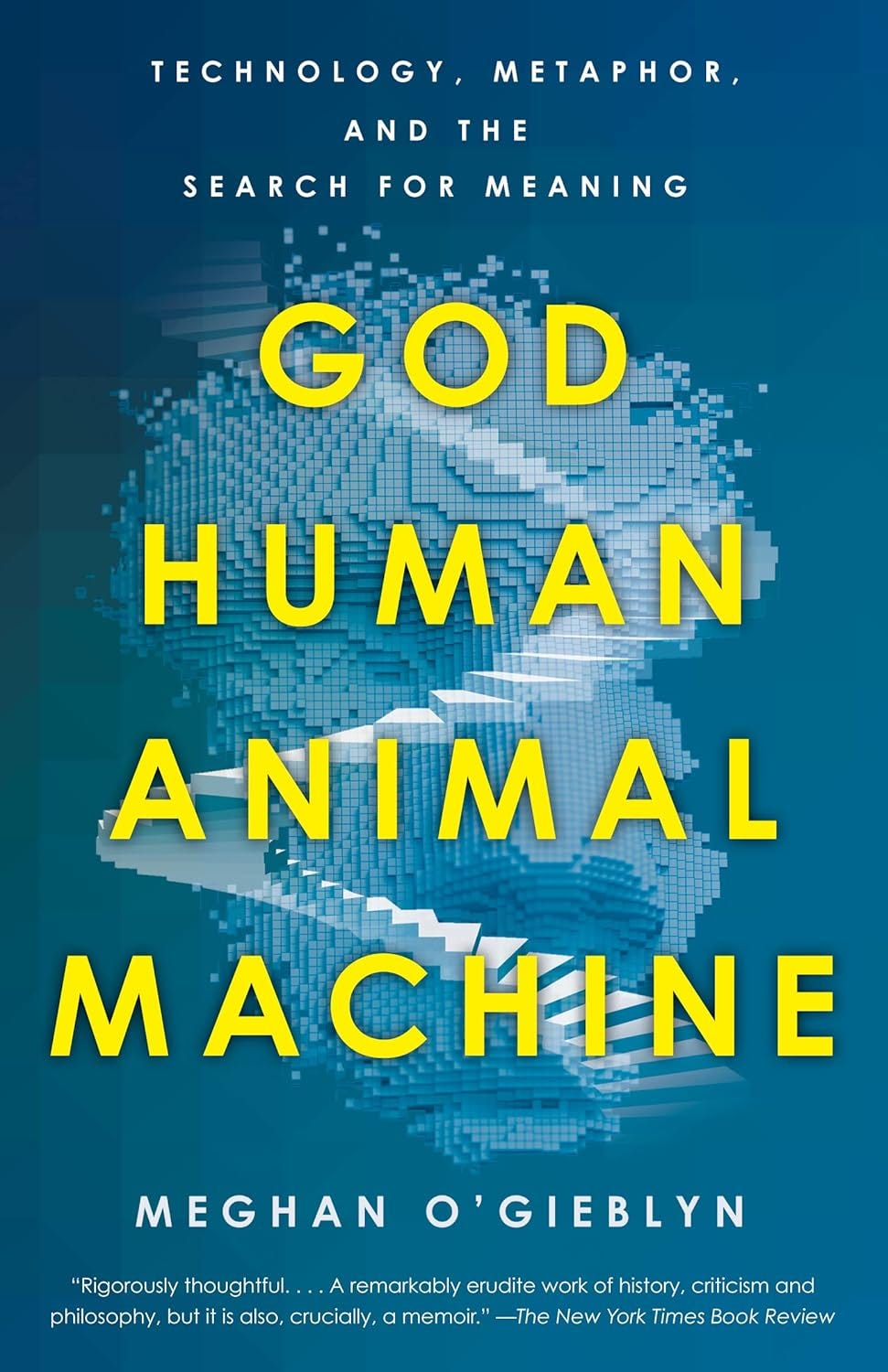Thank you for being here. As always, these essays are free and publicly available without a paywall. If you can, please consider supporting my writing by becoming a patron via a paid subscription.
The last few years have taken a toll on our academic institutions. Starting with the COVID-19 pandemic in March of 2020, remote school and modified on-campus policies disrupted and destroyed community in real ways. We're still feeling the consequences. Then, even as the pandemic continued to play out in the background, generative AI took center stage, marked by the public release of ChatGPT almost two years ago.
It's a perfect storm. While campus life has returned back to some semblance of normalcy in many ways, there are still cracks in the foundations. Those cracks are becoming increasingly apparent. We're continuing to grapple with the damage to the cultures of our academic institutions among and between students, faculty, staff, administration, and alumni. The campus protests which began in earnest last year, while appearing unrelated to either COVID or the explosion of generative AI tools, are deeply connected below the surface. At the root, these events reveal a loss of trust which was only accelerated by the loss of community, normal patterns, and our habits of living and working together.
As we take stock of where we are, we must ask: where next? At my own institution, Harvey Mudd College, I'm eager to find ways to rebuild community, trust, and a spirit of collaboration among our community. The many glimpses that I've seen and stories I've heard since I joined the college in 2019 give me hope for the richness that is possible. Our close-knit community of trust and the opportunities it creates for students, staff, and faculty are dear to me.
STEM for A Better World Requires Integrity
As I wrestle with the question of where to go next, I'm framing my thoughts in the context of our mission statement and honor code. First, the mission statement.
Harvey Mudd College seeks to educate engineers, scientists and mathematicians well versed in all of these areas and in the humanities, social sciences and the arts so that they may assume leadership in their fields with a clear understanding of the impact of their work on society.
This is a mission I want to be a part of. Our recently launched strategic campaign for the next decade is headlined by the vision "STEM for A Better World." In this context, we believe the world needs places like Harvey Mudd—places where we are training the next generation of STEM leaders not only with technical excellence, but with character, humility, and a vision to understand how their work can serve the world.
Harvey Mudd's honor code is a core part of this. Our honor code, like many across the country, is owned by the students and clearly articulates a vision for the type of learning and living community we want to be.
All members of the Associated Students of Harvey Mudd College [ASHMC] are responsible for maintaining their integrity and the integrity of the College community in all academic matters and in all affairs concerning the community.
The honor code is the secret sauce. It is the goal and aspiration that enables us to create a collaborative community and grow together to train and become the leaders that will help us shape the world to cultivate human flourishing.
But here's the thing about honor codes: they're only as good as the conversations and consistent commitments they reinforce and encourage. Without a committed buy-in from the whole community, an honor code will not work. It is an all-or-nothing endeavor.
As we take an honest look at the state of our campus in the wake of many disruptions—from the pandemic, the explosion of generative AI, and campus protests—we must redouble our efforts to support and revitalize this treasured part of our institution.
Where now?
Over the last few weeks, I've been thinking about the honor code from my view as a faculty member. Although the honor code binds only students, I wonder if this is a missed opportunity. What would it look like to develop a more expansive view of the honor code and formally include the entire community—students, staff, administration, and faculty?
In thinking about this, I've also spent some time engaging
's book Cheating Lessons. I commend it to you, along with the rest of Jim's books and his excellent Substack, . In Cheating Lessons, Jim directly addresses honor codes in Chapter 8, "Cheating on Campus." I found Jim's thinking to be very helpful in structuring my own thoughts, and agree with many, if not all, of his recommendations for honor codes and their application. His ideas heavily influence the thoughts that follow.What follows are some thoughts and questions I'm asking myself, organized into two categories: things I wonder if we ought to do and things I wonder if we ought to stop doing. I'll start with the do-nots.
Do Nots
1. Do not make students responsible for reporting their peers.
This is what I'll call the "snitch feature." Many honor codes contain an explicit requirement that students report not only when they have themselves violated the honor code, but when they witness a peer committing what they believe to be an honor code violation. For example, here's the line from Harvey Mudd's honor code:
Any member of the Harvey Mudd community who observes an Honor Code violation shall report the violation to one of the student conduct chairs stating the offense and the names of all parties involved.
If not reporting an observed violation is itself a violation (and it is), it is without a doubt the most frequently committed honor code violation. But here's the thing: this sort of reporting requirement is conflicting for a reason. Students don't want to be in the position of getting their peers in trouble, especially because of the serious consequences their peers could experience.
Lang agrees.
It seems a bit quixotic to me to hope that we can address that problem by suddenly expecting students to shrug off their relationships with their peers and report them for honor code violations—especially when doing so might potentially result in their peers being suspended or expelled from campus, impacting their lives forever.
His suggestion is that the responsibility for enforcing academic honesty should not be the primary responsibility of students. Faculty are the ones responsible for designing and teaching the courses our students take. We should be the ones to take the primary responsibility for discovering and reporting it.
He concludes:
Asking eighteen-year-olds to understand and navigate correctly this complex moral code strikes me as the equivalent of pulling the average citizen off the street, requiring them to sign a pledge that they will follow the law, and then giving them a police uniform and a gun and asking them to start arresting their neighbors every time they see an infraction. Should they arrest their neighbors? Of course. But there can be no doubt that doing so will change the relationship between neighbor and neighbor, as well as the general environment of the neighborhood—and not always for the better, in spite of the small benefits it might have for academic integrity in general.
I find it hard to argue with his logic here. In light of that, should we lift the requirement that binds students to report on their peers? At the very least, if this aspect of the honor code doesn’t have full support of the students, there should be an effort to revise it. What if students were required to confront and encourage their peers to self-report if they suspect an infraction, but not be required to report their peers directly?
2. Do not burden students with the responsibility to uphold the honor code process on their own.
Another natural point of weakness in honor code processes is when it is completely student-run. I strongly believe in the value of having the honor code being led by students, but having it fully administered and organized by students strikes me as a bit unreasonable. The challenge of rotating year-over-year membership is simply too great a burden to expect students to bear.
Why not restructure the honor board to allow students to lead it, while surrounding them with the faculty and staff support that would help unlock their ability to do the work that they are uniquely able to do. This might include advocating for the honor code among their peers, organizing the process of hearings, and advocating for students who are in the process of being restored to the community through the processes of the honor code.
3. Do not lead with punishment
The stated goal of the honor code process is primarily restorative and educational, not punitive.
The primary purpose of the student conduct system is to educate students while correcting behavior that does not meet the Standards of Conduct for the HMC community. The goal of the student conduct system is to help students learn from their mistakes while helping them to understand the consequences of their actions and how their actions may have negatively impacted the HMC community.
Unfortunately, while this is the written aim, I imagine that most students do not perceive it this way. Engaging with any sort of disciplinary process is by default at least somewhat painful. It requires admission of guilt and a price for restoring oneself to the community.
What would it look like to better align the perception of the honor code process with its stated reality? How might we help students to understand that it is a natural part of being human to make mistakes—in many ways, the honor code is there not only as an ideal to be pursued but as a process to help restore the community when it is broken. What if specific student representatives on the honor board were designated to serve as advocates for those found to be in violation of the honor code? Not as a way of defending or condoning the breach of conduct, but as a way of coming beside the offending party to help them re-enter the community and repair the wrongdoing?
Do
On the flip side, I also wonder what positive actions we might take to further support and uphold the honor code.
1. Do remind students that their studies are not just about what they learn, but who they become.
One of the wonderful things about teaching at a place like Harvey Mudd College is that there is a well-established understanding on campus that the time students spend on our campus is not just about the technical skills that they gain, but also—and perhaps primarily—about who they become during their time with us.
As we seek to support the honor code, it is a good opportunity for us to remind ourselves and our students that the honor code is a treasure. That our community is a treasure. That the opportunity to grow in a caring community within an institution with faculty and staff that care deeply for their students and their growth as people is a great privilege and joy for all involved.
2. Do explicitly communicate the benefits that a classroom filled with integrity enables.
Honor codes enable many privileges. A robust community of trust enables students and teachers to fully leverage the limited time we have together. Exams and other assignments can be taken outside of class, freeing up time to cover more advanced material together. Space and resources can be made available to students at all times and with very few restrictions. A robust honor code eliminates (and in some cases philosophically prohibits) the use of surveillance technologies that fuel distrust between students and their teachers.
As a faculty member, I treasure these aspects of the honor code. They bring me joy. The joy to dig deeper with my students and to create a foundation of trust which we can continue to build on as we journey into our work together in the classroom.
3. Do frequently engage students in conversation about the honor code.
If there's one thing I took away from Jim's chapter on honor codes, it's that the conversation about integrity is what matters most. A preexisting honor code is a natural tool in creating this conversation as it is a common commitment that all students have made. But all too often we fail to engage each other in dialogue about what the honor code is and why it matters.
We should talk about the honor code regularly. At the start of our classes, we should clearly articulate our expectations for what adherence to the honor code looks like. Before a significant assessment like a test, we should do the same, reminding students of the pledge they have made and asking them to recommit themselves. A continuous conversation in the background will keep giving the fire oxygen as we seek to maintain a vibrant honor code culture on campus.
Honor codes are an important mechanism to promote the health of our educational spaces. They are certainly not the be-all, end-all for a flourishing classroom or school, but when they are working well, they are a north star to orient us toward worthwhile pursuits and create the conditions for trust that enable us to cultivate a fruitful learning environment.
As I look toward the future of the honor code at Harvey Mudd, I'm hopeful that we can continue to bolster and support it. It is a gift to our community and a treasure worth defending.
If you’ve got a comment, I’d love to hear it. If you have a friend or colleague who would get something out of this, please share this post with them. And if you liked it, hit the heart button or restack it so that others can find it.
Reading Recommendations
Lots of great stuff this week. Here are a few things I’ve been reading and you should too.
I mentioned Dario Amodei’s latest essay “Machines of Loving Grace” last week. I finally had a chance to read it, and there is much to be said. Maybe I’ll write something about it soon, but there are already several thoughtful takes that I’ve appreciated reading.
The first is a piece from
over at , “Engineer as Magus”. Henry offers many thoughtful critiques about why Amodei’s vision doesn’t hold water for him. I am sympathetic to many of them, which are stated with eloquence and humor.I also very much appreciate the generous spirit in which Henry engages Amodei’s thoughts—a refreshing form of critique in our world of hot takes designed to rip on others and their thoughts. This essay is an inspiration for the style of critique I hope to embody in my own writing.
The people whom I find more credible suggest that LLMs are simulacra, and will never be more than that, unbreathing statues that seem to speak, but that will never be inspired. If you prefer Herbert Simon’s language, they are “[a]rtificial things [that] may imitate appearances in natural things while lacking, in one or many respects, the reality of the latter.” Artificial things, as a general class, channel and process information. That they might occasionally be mistaken for human intelligences is not a hint as to their ultimate uses, but a distraction from it.
Henry’s piece is embedded with lots of great hyperlinks to other resources. Hyperlinks are the best part of the web! Here’s one that is particuarly worth your time, from
and .One of many great quotes I could pull, which encapsulates the core of my critique of Amodei’s vision.
It seems highly unlikely to us that growth could greatly accelerate without progress in manipulating the physical world. Many current economic bottlenecks, from housing and healthcare to manufacturing and transportation all have a sizable physical-world component.
LLMs do next token prediction
LLMs make predictions based on their training data
LLMs have a limited memory
All of this is only sort of helpful
It’s worth a read.
Glad to find myself singing in the same chorus with
over at this week. In Marc’s latest, he reminds us that engaging is not equivalent to adopting. Or, as I wrote a few months ago, we should not be integrating AI, but we must be engaging it.Finally, I enjoyed this piece from
in .The Book Nook
I’m getting close to the end of
’s book God, Human, Animal, Machine: Technology, Metaphor, and the Search for Meaning. It’s great and got lots of thought-provoking ideas, as Meghan winds her way through her own personal and spiritual journey, physics, computer science, and the culure-shaping power of technological innovation.The Professor Is In
In addition to my chapel talk at LeTourneau, I also gave a talk on AI & Human Flourishing for LETU’s Faith, Science, and Technology Initative. The video just posted last week, so take a look if you are interested. In it I talk about Silicon Valley’s lack of imagination, the importance of seeing technology as a medium and a cultural artifact and not simply a tool, and share some ideas on how we might move forward in a better way, heavily drawing my inspiration from the Praxis Redemptive Thesis for AI.
If you’re interested, I also uploaded a copy of the slides (which unfortunately are not captured in the recording) to my talks page. You can download the slides here.
Leisure Line


#3 turned one yesterday, so the kitchen scientist dad was on the job once again. This time back to an old favorite, confetti cupcakes from Sally’s Baking Addicition. As good as usual! Getting geared up for a red velvet cake for #1’s birthday next week.
Still Life
A few times a year the Kidspace museum in Pasadena stays open late for a nighttime event. This last week was Owl-o-ween. The kids had a great time staying up past bedtime and this cute little xcreech owl stole the show.










As a 2014 physics alum, I feel this discussion warrants heavier consideration towards:
1. The immense pressures that students are under (see: Wabash report).
2. The fact that there’s a genocide happening before our eyes, and a refusal from the administration to engage with its own role in that with the severity and urgency it deserves - not to mention escalation of dangerous anti-protest tactics used on students. When you see that sort of betrayal and lack of ethics from an organization like Mudd, it shatters your belief in the community, and cheating on a test to get through the week sure seems like much less of a big deal in comparison. Why would students care about upholding the community values of an organization that shows itself to not care about upholding its own mission statement?
Thanks for writing this - have been thinking a lot about this as ASHMC discusses the recent protests and how different members of staff and faculty are perceiving the honor code. Agree with a lot of what you're saying and honestly would love to personally look more into honor-code related literature!